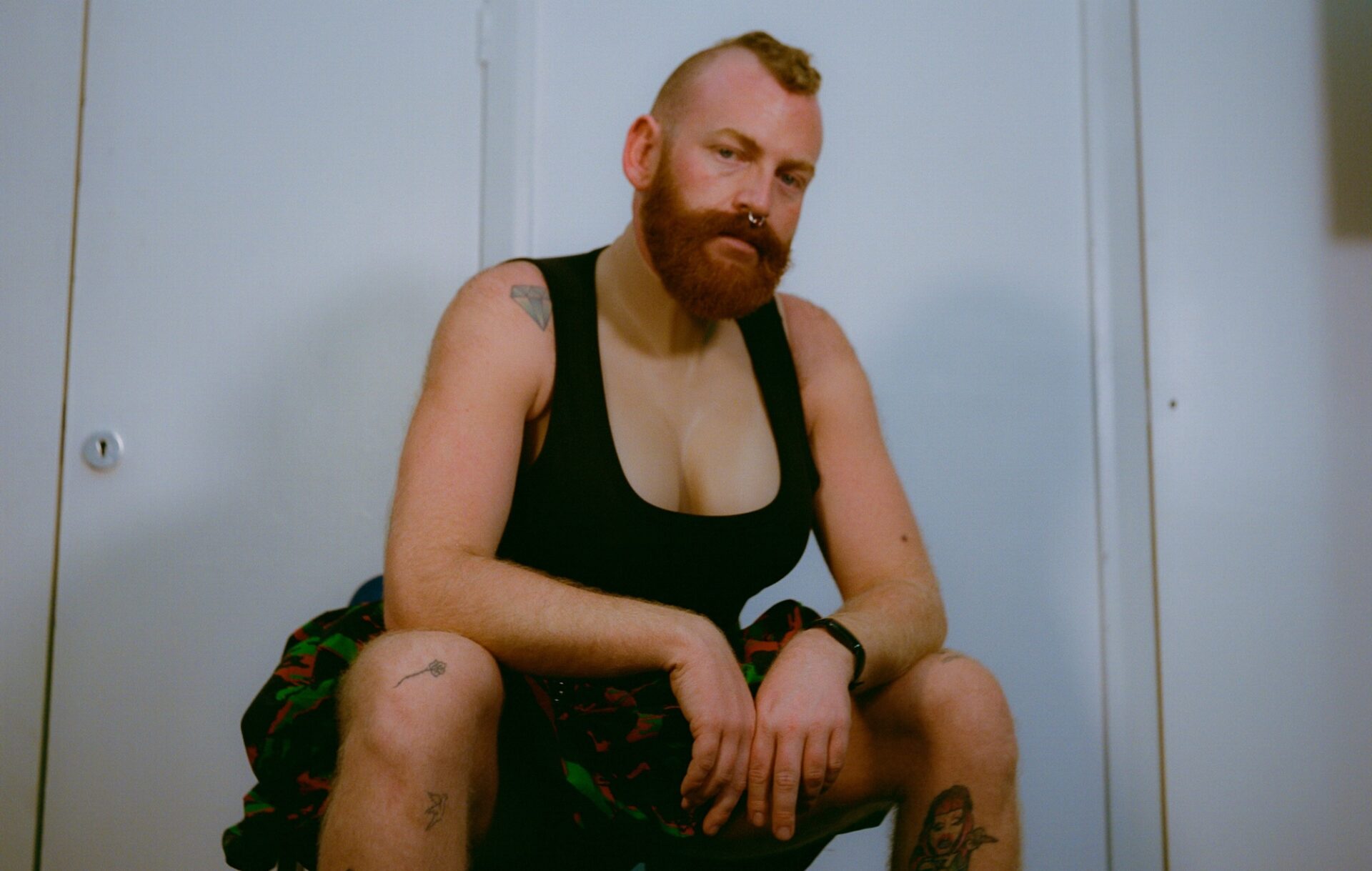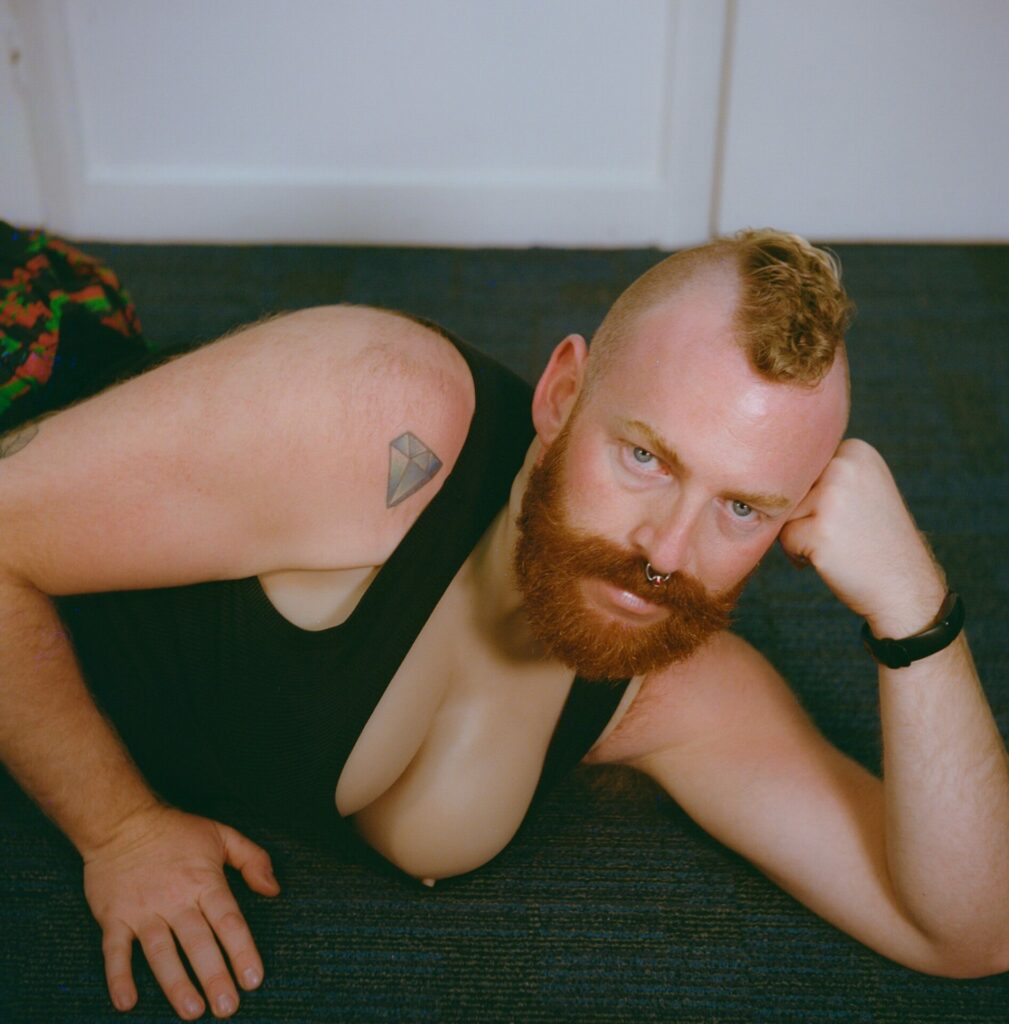Tom Rasmussen: ‘I really just want to help people feel’
The artist discusses new album ‘Live Wire’, their queer musical heroes, and why hope is “a powerful tool of resistance”

On a recent Friday at the legendary KOKO venue in Camden, musician Tom Rasmussen brought their pop operatic vocals to London, unifying the room through the sheer honesty of their music, and the piercing power of their once in a generation voice. What felt most radical was its rare sincerity (not to be confused with earnestness, which implies overkill or disingenuousness); there was a remarkable unpretentiousness to Tom’s concert, so emotionally true and unconcerned with “cool” that a diverse room of 1000 people could openly cry, dance and embrace – we were being encouraged to feel, and without filter.
“As an artist, I want to help people be able to feel,” Rasmussen tells me, as we both hack away at a full English breakfast in a Camberwell café. “KOKO, the UK tour too, was about bringing people hope and about coming together. I just want a live show to feel like a shared moment of catharsis.”
Ethel Cain recently aired her frustrations that we are living though a cultural epidemic of irony. Her justified grievances reflect the way cultural output can barely survive without being repackaged into some kind of meme or sarcastic Tik Tok, inevitability deadening whatever truth lay behind the work. It’s interesting that Brat was a sophisticated commentary about thriving in the midst of a cultural graveyard, yet still lay victim to having its meaning diluted when retooled for Kamala Harris’ election campaign (a campaign which did little to address the concerns of the millions of young people who flocked to Brat in the first place).
I speak to Tom about making work in the age of the internet and resisting the force of its black hole. “Well, I grew up in the cringe millennial age of the internet…where I made definitive FB statuses and wrote online articles that were like – ‘I HATE my feet and this is what queer identity is!’ ” (Side-note: I’d actually love to read this).
What Tom is gesturing at is the way online culture produces a kind of black and white thinking – a world of definitives and shallow, pithy irony. “In my early twenties, when I was doing drag, a lot of my work was totally ironic, and I think a bit apathetic.” Drag has always incisively reflected the culture around it, and it’s no surprise, Tom tells me, “that during my 20s there was a big trend towards apathy in pop. Whether that’s Lana Del Rey’s early work, Lorde’s first album. Funnily enough, Lana Del Rey’s work – I think she’s a genius by the way! – has been about a move towards deep feeling. Not to compare myself, but that’s what I’m hoping to do.”
We talk about the politics of apathy and feeling in an age of such profound horror – the sheer devastation in Gaza, the escalation of fascism all across the globe, climate oblivion. “Sometimes apathy is a political decision to not feel in a world that none of us can truly understand. But I’m not trying to provide answers. I just want to provide an opportunity to feel. The only thing you can do with a feeling is feel it and move through it – towards, hopefully, action.”

Tom’s latest album, Live Wire — released recently by Globe Town Records, their longtime collaborators — is a raw expulsion of feeling digested into epic pop ballads, club bangers, disco-adjacent grooves and even operatic psalms; it includes powerful collaborations with artists who share a similar vision of honesty, Romy and Self-Esteem. It’s sincere, tragic, angry, funny, hopeful and unreservedly fun, as if an offering to the those of us too scared to express our emotions in public; it’s an album designed to be blasted as you dance and scream on your bed for cathartic release. Its generosity is a rare gift, and Tom has undoubtedly had to mine their own traumas in order to produce something so honest. Emotionally, it feels reminiscent of ANOHNI’s haunting and defiant work, Perfume Genius’ fiery musical confessions and Florence + the Machine’s poetic and emotionally unleashed crie du soirs.
The complexity and contradictions of being human are at the heart of Live Wire, and Tom and I discuss how the work interacts with the industry. I share my experiences and frustrations as a filmmaker, and how so many queer narratives on screen seem fixated on a simple coming out story, with clear heroes and villains. Though Tom’s queer identity is the lens with which they produce work, it feels markedly different to the LGBT artists being celebrated mass culturally – simply confessing to having a queer sexuality, a sort of continual coming out, is not the point. It’s concerned with everything after, of the intricacies, messiness, beauty, grief and euphoria of queer life. No record I’ve listened to has allowed me to access the sheer vastness and complexity of the queer experience – for it is just, at its core, about the sheer depth of the human condition.
Tom confesses that their resistance to conform puts them at odds with limited ideas of what a gay or queer artist should be. “I’m trying to resist legibility. My albums are described as multi-genre, but if the feeling is there then let it sing! But to be honest, I think anyone who has ever felt illegible or misunderstood could connect to the record. And that’s everyone, lol.” Tom’s ‘question everything’ approach is surely informed by their music idols, whose legacies are those that Tom aspires towards – “Arthur Russell, Victoria Monet, ANOHNI. Madonna… Ray of Light era!”
Tom looks lost in thought as they finish the sentence. And then I realise they are lost in the sounds of their musical heroes; they look at me and smile, emotion swelling: “Honestly Amrou, I really just want to help people feel. Whether that’s feeling sexual, feeling indestructible, feeling loss or sadness. And I’m really concerned with hope. I think the reality is, in this horrifying world, where we can’t fully comprehend what’s happening around us… hope is a powerful tool of resistance.”
